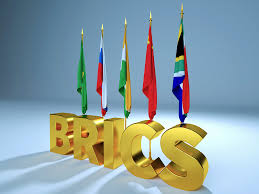
Russia Advocates for New BRICS Precious Metals and Agricultural Trade Platforms
At the BRICS summit held on October 23 in Kazan, Russian President Vladimir Putin proposed creating a BRICS-specific platform for trading precious metals and diamonds, targeting overregulation in the sector. He argued that excessive trade barriers limit market potential, emphasizing:
> "We see the feasibility in creating a separate BRICS platform for precious metals and diamonds. This market is indeed excessively regulated by various trade barriers in circumvention of the universal certification scheme of the Kimberley Process."
Putin also underscored the successes of the BRICS International Center of Antitrust Law and Politics, suggesting it should expand further to include an intergovernmental platform on fair competition.
The Kazan Declaration issued at the summit reaffirmed the BRICS nations' commitment to increasing the trade of precious metals, emphasizing unified standards across member countries. It also voiced ongoing support for the Kimberley Process, the global certification standard for rough diamond trade. Additionally, BRICS countries pledged to foster free trade within the global diamond industry by creating an informal cooperation network with African diamond-producing nations.
On agricultural trade, the summit endorsed Russia's proposal to establish a BRICS Grain Exchange. According to the Kazan Declaration, the exchange would secure stable agricultural trade flows and mitigate disruptions caused by restrictive trade measures. The BRICS leaders called for a rules-based approach in agricultural trading to safeguard producers and exporters against unnecessary restrictions. The summit underscored the value of establishing independent trade platforms within BRICS to deepen cooperation and lessen reliance on external regulatory frameworks across multiple industries.
> "We see the feasibility in creating a separate BRICS platform for precious metals and diamonds. This market is indeed excessively regulated by various trade barriers in circumvention of the universal certification scheme of the Kimberley Process."
Putin also underscored the successes of the BRICS International Center of Antitrust Law and Politics, suggesting it should expand further to include an intergovernmental platform on fair competition.
The Kazan Declaration issued at the summit reaffirmed the BRICS nations' commitment to increasing the trade of precious metals, emphasizing unified standards across member countries. It also voiced ongoing support for the Kimberley Process, the global certification standard for rough diamond trade. Additionally, BRICS countries pledged to foster free trade within the global diamond industry by creating an informal cooperation network with African diamond-producing nations.
On agricultural trade, the summit endorsed Russia's proposal to establish a BRICS Grain Exchange. According to the Kazan Declaration, the exchange would secure stable agricultural trade flows and mitigate disruptions caused by restrictive trade measures. The BRICS leaders called for a rules-based approach in agricultural trading to safeguard producers and exporters against unnecessary restrictions. The summit underscored the value of establishing independent trade platforms within BRICS to deepen cooperation and lessen reliance on external regulatory frameworks across multiple industries.
